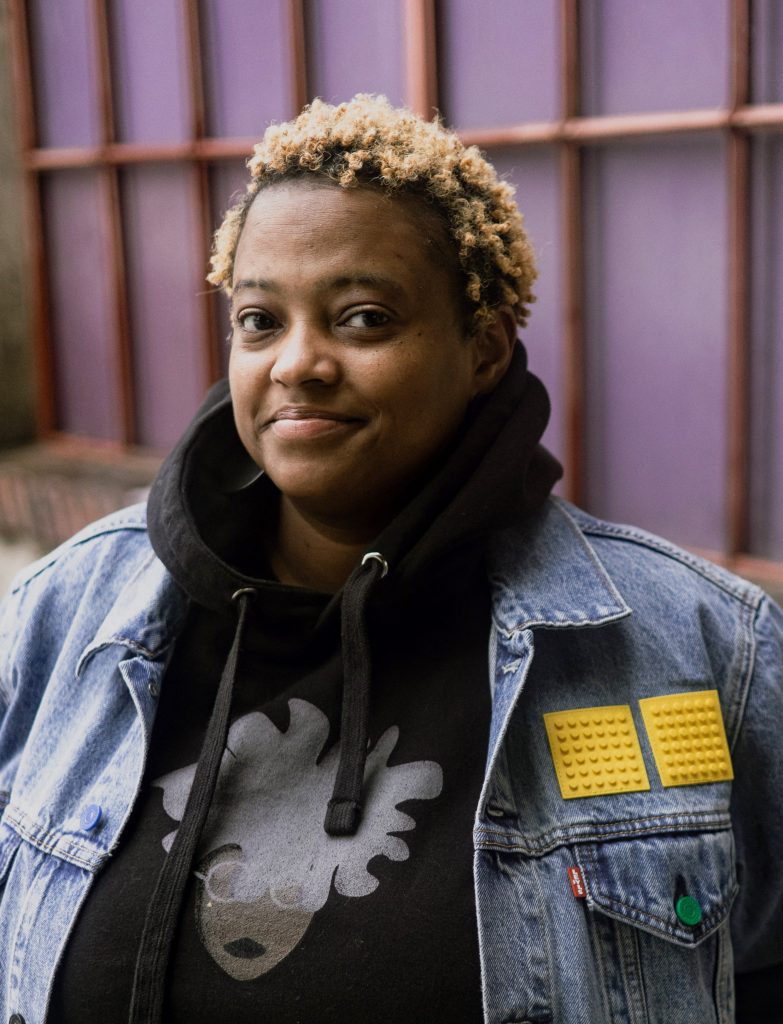For a ninth year, EWU’s Department of Gender, Women’s and Sexuality Studies and its Women’s and Gender Education Center are teaming up to sponsor an Activist in Residence program for the Eastern campus.

This year’s resident activist, multimedia artist and writer Shantell Jackson, will work with EWU students, staff, faculty and the greater community to focus on healing and building organizing skills.
Workshops and panel discussions will be held from 3:30 – 5 p.m. each Wednesday from Jan. 26-March 2 (except for Feb. 23). All sessions will be offered via Zoom, and are free and open to the public.
Jackson, who currently serves as the program director of Spokane Arts, has 17 years of experience in higher education, where she has created academic and multicultural programing to help students better understand themselves and others. Jackson has also recently worked with Spectrum Center Spokane to facilitate training programs such as LGBTQ+ Safe Spaces, Identity 101 and Allyship.
Her creative work includes installations and performance-art pieces that explore the human condition while encouraging dialogues across differences, bridge building and forging acceptance and healing.
The interactive Zoom workshops will help enrich participants’ understanding of social justice and encourage them to explore new ways of engaging in strategies for change. Participants will be encouraged to interact and share stories, organizers say.
Many EWU faculty are offering students extra credit or other incentives to participate.
Registration is free and covers all Activist in Residence events. Those participating in four or more sessions will receive an Activist in Residence certificate. For questions or to arrange a class or group visit, email Lisa Logan at llogan83@ewu.edu. A printable poster is available here.
Activist in Residence Sessions include the following:
Jan. 26 – Setting the Stage for Healing in Activism
What is activism and why should we discuss its overlap with healing? This session will help participants understand the context of this contemporary discussion. Who is healing and what are they healing from? Come learn about “Healing Justice,” and start to think about its application.
Feb. 2 – Race and Activism: History & Definitions
Learn more about the history of race and activism. Where do these two ideas converge? What has the work been and where is it going? Why is race an important part of the conversation?
Feb. 9 – Centering Healing for Survival & Community
Healing is essential for both the individual and the collective, especially for those impacted by systems of oppression. In this panel, we ask: “What does centering healing and survival look like and how can we foster spaces for healing?”
Feb. 16 – Power and Privilege in Activist Communities: For Better or Worse
We can learn to use our power to make a difference and to aid in the healing of historically marginalized communities. Sustained change can result from using our privilege as a tool for activism. However, power can also lead to negative changes when we co-opt movements. Learn how to recognize the difference and avoid harm.
March 2 – Intersections of Identity: Individual & Collective Healing
Participants will take the knowledge and themes discussed during the program and think about long-term applications as activists, allies and community leaders. This will be an opportunity to learn from experienced community leaders, and to be introduced to strategies and practices that have been successful in fostering both individual and collective healing.


Comments are closed.